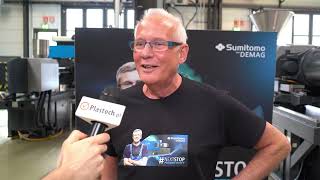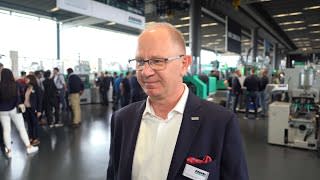"The El-Exis range of hybrid moulding presses was designed for high-speed production," continued Dave Raine. "It incorporates a number of innovative mechanical and software features and typically achieves 3-5% more productivity than other machines on the market. When fast production speeds and frequent changes are required, machine versatility is vital. It's here that advanced system controls combine with superlative build quality to minimise maintenance requirements and changeover times."
Efficient production of thin wall plastics also relies on operator skills and experience, and Sumitomo (SHI) Demag places great emphasis on pre-installation training and familiarisation, as well as on-going process optimisation.
"This helps to ensure that start-up is trouble-free and full production can be achieved from day one," commented Process Support Engineer Nick Smith.
"Today, injection moulders are increasingly looking to their equipment suppliers for much more than a machine. Our philosophy is to work with our customers to provide a solution that's exactly right for them. This can range from formulating the correct procedures to achieve optimum cycle times, advice with tooling, provision of ancillary equipment for in-mould labelling and robotic handling, plus that all-important training."
Demands to create smaller, lighter parts have made thin-wall moulding one of the most sought after capabilities for an injection moulder. From a machinery manufacturer point of view, thinner wall sections bring changes in processing requirements: higher pressures and speeds, faster cooling times, and modifications to part-ejection and gating arrangements. These process changes have in turn prompted new considerations in mould, machinery, and part design.
Thinking thin: it pays to consult a specialist
- Pages:
- 1
- 2



